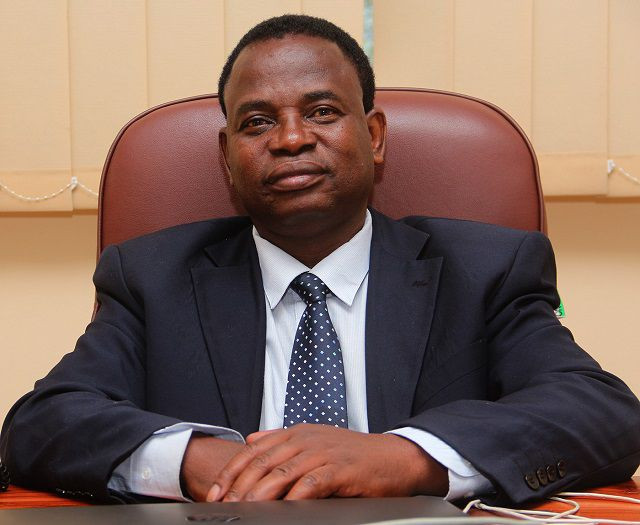
AS global economies make drastic adjustments to ensure pension preservation, Zimbabwean fund members are now demanding involvement in the process as they continue to wallow in abject poverty amid the continued economic meltdown.
Over the years, pension values have been eroded through currency changes.
This first erosion occurred in 2008/09 recession, then in 2019 when the multicurrency regime was abandoned for the Zimbabwe dollar (ZWL) only to return in 2020 and in April, when the ZWL was dumped for the Zimbabwe Gold (ZiG) currency.
From each of these currency changes, pensioners watched their earnings from life-long years of work and service being wiped off.
Further, issues around demographic trends, changing work patterns and low investment returns have shifted the way current members and the pension funds look at pension.
Consequently, pension funds have had to look at various initiatives for viability, including reforms.
For example, Zimbabwe’s neighbour, South Africa, recently announced a Two-Pot Retirement System. This is a reform that will allow retirement fund members to make partial withdrawals from their retirement funds before retirement, while preserving a portion that can only be accessed at retirement to help improve retirement outcomes.
This means that members need not resign to access part of their retirement benefit if they are in financial distress, according to the South African government. The reform came into effect from last month.
These are some of the emerging trends that were discussed at the recent Zimbabwe Association of Pension Funds 5th edition of the Principal Officers and Chairman’s Convention, held in Bulawayo.
During the convention, pension funds unpacked such trends as strategies to be adopted locally to revamp the entire industry valued at about US$2 billion, a figure revealed by the Insurance and Pensions Commission director, Pensions and Life, Cuthbert Munjoma.
Construction Industry Pension Fund chief executive officer Elisha Ngunga told the convention that through key engagement surveys, members had made various demands that included having hard assets, involvement in decision making and technological adoption.
“The first one is that they would want to have hard assets, through ownership of houses, whether they would get them through a right to buy or outright purchase. The second one is their involvement. They would want to be involved in making decisions for the fund.
“They would want us to come up with written forms where they would do more like a poll, where they would say, ‘we want you to place our investments in these areas’. Then the third one is the use of technology. I think paper filing or form filing for them has become a cake. They would want to have applications where the majority of them are now owning funds, even Kambutsu, where they can easily put their demands or their pieces of minds to the fund.”
These demands are coming as pension fund members have come to the realisation that their life after retirement is slated for the same fate as current pensioners who faced the currency changes.
Last month, the local currency recorded its worst single drop since its debut to US$1:ZiG24,39, from a prior day comparative of US$1:ZiG13,99.
As the industry tries to come up with solutions to the pensioners’ plight, Rimca Solutions director Gandy Gandidzanwa said key issues for pension funds remained around digitalisation, consolidation of the industry and the full adoption of alternatives.
“One key trend is around digitalisation. You find that your bigger pension funds globally are really embracing technology, not only for competitive reasons, but as an enabler. The second one is about consolidation of the industry. We could actually get to a point where we have just as few pension funds as we have got banks,” he warned.
“Can you imagine a world like that? Or a country like that? One where the members, in the same way that they choose which bank that they want to bank with, would be the same way that they would be choosing which umbrella fund they would want to participate in? The third and final key is around full adoption of alternatives. And yes, there’s the saying that alternatives are slowly becoming the mainstream.”
While other presenters spoke about challenges about defined contribution schemes currently being run in the country, Old Mutual Life Assurance general manager Linda Mariwande said members needed to have something to look forward to at retirement.
“What is happening globally is that they are trying to find a way of mitigating the risk of a total defined contribution without necessarily coming up with a defined benefit fund. And we have, particularly in the UK, what they call ‘Defined Ambition Plans’, where it is an idea of what you’re looking forward to. It doesn’t put that much burden on the employer as the defined benefit would. But, at least as a member, you’ve got something to look forward to and you don’t worry about inadequacy in the end,” she said.
“And you’re surprised at how much you’ve accumulated when you have no idea how to get to the actual amount or closer to the amount that you need. That’s one direction that others are taking. The second one is that it spoke to the umbrella funds. And in some instances, it can be a whole company coming in, but it can also be individual.”
She said the United States had what they called “Individual Retirement Accounts”, where a member chose where to put their money, where to take it, and chose how much they wanted to contribute.
“There, too, of course, are some guidelines around that. But at least there’s the member’s participation. No one is paternalistic to you. And you don’t blame anyone if things don’t quite work because you are participating and you know what you’re doing and you’re making the decisions on your own,” Mariwande added.
From an investment management point of view, Bard Santner Inc. director Alfred Mthimkhulu said capital had become extra liquid and very fluid.
“... When we come back locally, we can now invest offshore. But… people are not quite yet conversant or quite alert to what the global trends are. So that’s something that the industry, at least in the investment management space, is working on. And then, the other issue is that the industry has become, at least locally, there’s a lot of asset managers that have come to the market,” Mthimkhulu said.
“If you speak of consolidation, in the asset management space, there’s a lot of us that have come to the market. And yet, if you look at the funds under management for the different asset managers, you realise that actually, it’s a very oligopolistic kind of industry where funds are concentrated in a few layers. Which, I mean, your basic economists will tell you that the scope for the industry, for that sub sector of asset managers, to be a bit more competitive than they are.”
By the end of the convention, panellists agreed that Zimbabwe had the potential to adapt to the emerging trends and needed to do so.
However, panellists cautioned that this would need the right fundamentals and willingness to apply them.










